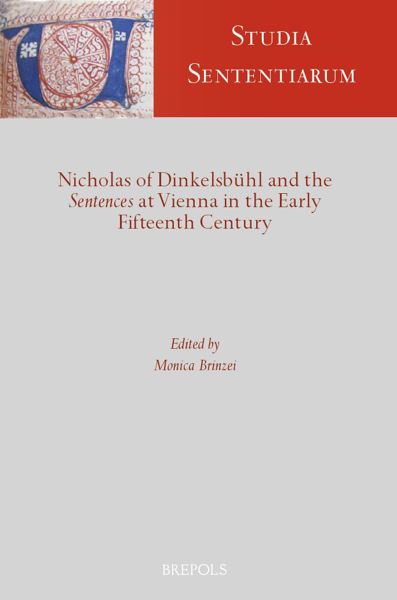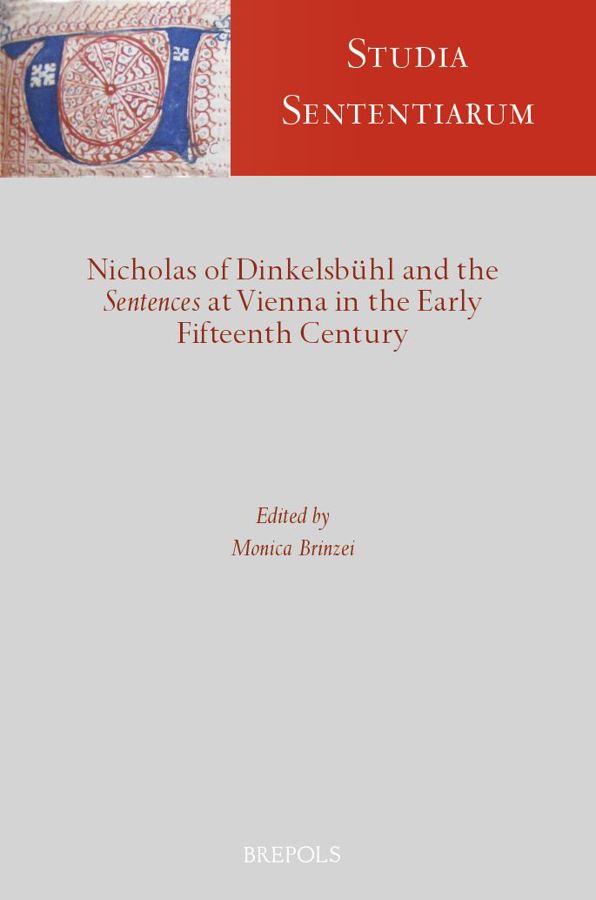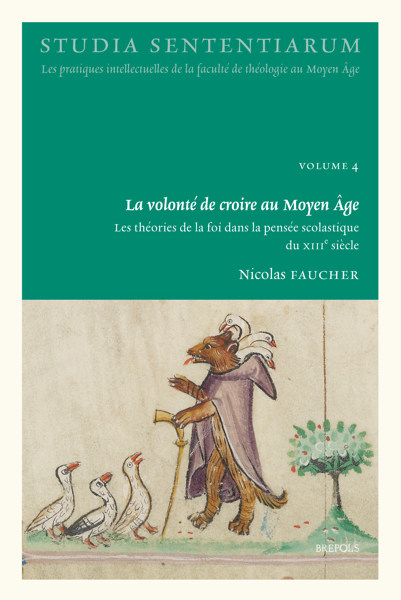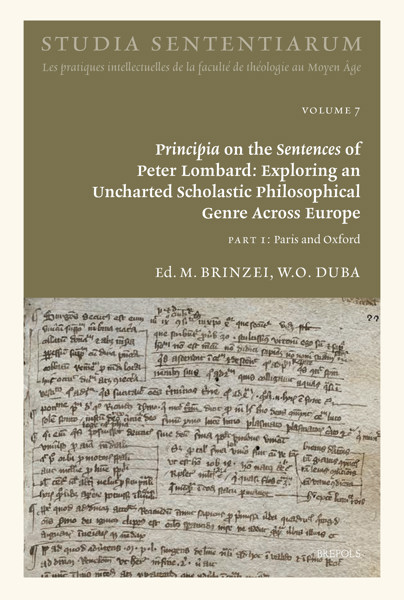
Nicholas of Dinkelsbühl and the Sentences at Vienna in the Early Fifteenth Century
Monica Brînzei (ed)
- Pages: 489 p.
- Size:156 x 234 mm
- Illustrations:11 b/w, 4 col., 3 tables b/w.
- Language(s):English, French, Latin
- Publication Year:2015
- € 100,00 EXCL. VAT RETAIL PRICE
- ISBN: 978-2-503-56281-0
- Paperback
- Available
- € 100,00 EXCL. VAT RETAIL PRICE
- ISBN: 978-2-503-56568-2
- E-book
- Available
"Der Sammelband, der auf den Beiträgen einer Tagung in Paris 2013 beruht und von einem Register der Handschriften und Personen abgeschlossen wird, steht am Anfang einer neuen Reihe, die von Claire Angotti und Monica Brînzei herausgegeben wird. Das selbstgesteckte Ziel, neue Erkenntnisse für die Universitätsgeschichte zu gewinnen, konnte durch intensives Handschriftenstudium erreicht werden. Es ist daher zu hoffen, dass bald weitere Bände folgen werden." (Thorsten Schlauwitz, on: perspectivia.net [http://www.perspectivia.net/publikationen/francia/francia-recensio/2017-2/ma/brinzei_schlauwitz])
“The enormous task of bringing the vast medieval and early modern literature on Peter Lombard’s Sentences into printed form in modern editions takes an encouraging step forward with this scene-setting volume in a Brepols Studia Sententiarum series. The work of Nicholas von Dinkelsbühl offers an insight into the teaching of the Sentences at what was still the ‘new’ University of Vienna. As ever with Sentences commentaries, the emphases of those of Dinkelsbu¨ hl give a picture of particular concerns of the day.” (G.R. Evans, The Journal of Theological Studies, Oxford 1 (67) 2016)
“Nicholas’s commentary triggered a significant body of similar works at the young University of Vienna. Brînzei and Schabel have termed these works the “Vienna Group Commentary,” and they have been attempting to untangle its sources, authors, development, and influence. The present volume makes a major contribution to this project.” (Ph. Rosemann, Speculum 93/1 (2017) p. 181-182)
Monica Brinzei is currently directing the ERC project THESIS at the IRHT in Paris.
This volume examines the faculty of theology of the University of Vienna after the new institution produced its first students. Taking Nicholas of Dinkelsbühl as our guide to this nascent academic milieu, the five contributors illuminate the university system at Vienna, describe the evolution of doctrine, identify the network of professors that developed the specific curriculum, and trace the reception of the academic writings outside the university. Traditionally the history of medieval universities is based primarily on statutes, cartularies, or other documents relating to the organization of the university as an institution. The present studies instead inspect the underside of the iceberg and penetrate the academic context of Vienna by reading and editing the texts issuing from the practice of teaching. The papers gathered here shed new light on the main pedagogical protagonists, measure the impact of the transmission of ideas between the Universities of Paris and Vienna, and provide access to the community of scholars to whom this material was addressed.
- Monica Brinzei, Introduction
- Christopher Schabel, Nicholas of Dinkelsbühl and the Filioque at Vienna in the Early Fifteenth Century
- Ueli Zahnd, Plagiats individualisés et stratégies de singularisation. L'évolution du livre IV du commentaire commun des Sentences de Vienne
- William Courtenay, From Dinkelsbühl Questiones Communes to Vienna Group Commentary. The Vienna School, 1415-1425
- Monica Brinzei, La Lectura Mellicensis de Nicholas de Dinkelsbühl dans le sillage de l'esprit reformateur de Jean Gerson
- Adinel Dinca, Reading Nicholas of Dinkelsbühl in Medieval Transylvania: Surviving Texts and Historical Contexts.




